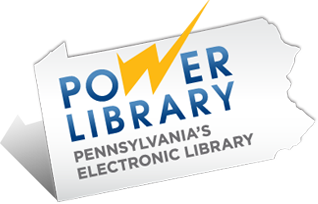May is Mental Health Month. If you or someone you love is experiencing mental illness, it’s important to know that you’re not alone. According to the National Alliance on Mental Illness (NAMI), “1 in 5 U.S. adults experience mental illness.” Stress and feelings of sadness are normal, but if your symptoms are impacting your life, help is available.
Get the facts
When it comes to mental health, knowledge is power. Your local library can help you find the information you need! Check the nonfiction shelves in the 150 (psychology) and 616 (medicine) ranges for physical books on mental illness, self-care, and coping strategies.
Hoopla offers books on PTSD, mood disorders, and grief/bereavement. Plus, you can find a curated shelf on cloudLibrary for Mental Health Month.
Find support
Commonwealth of Pennsylvania Mental Health Resources
The Commonwealth of Pennsylvania has created a comprehensive guide to mental health resources. Explore a wealth of information, including screening questionnaires and resources for members of particularly at-risk groups, here.
Employee Assistance Programs
If you are currently working, your employer may offer a confidential Employee Assistance Program (EAP). EAPs are provided by a third party and paid for by your employer. They can help navigate issues relating to emotional health, substance abuse, and more.
Lenape Valley Foundation Adult & Children’s Mobile Crisis Services
“Lenape Valley Foundation Mobile Crisis Intervention Services are available to all residents of Bucks County of all ages who are experiencing acute issues with disturbed thought, behavior, mood or social relationships that require immediate intervention.” Find more information about available services here.
NAMI HelpLine
If you’re not in crisis, but you do want information and support while you figure out what to do next, contact the NAMI HelpLine by phone, chat, or email. Trained volunteers can help you work out your next steps.
If you or someone you love needs immediate help, call the Bucks County Mental Health Crisis Hotline 24/7 at 1-800-499-7455 or the National Suicide Prevention Hotline at 1-800-273-8255.

